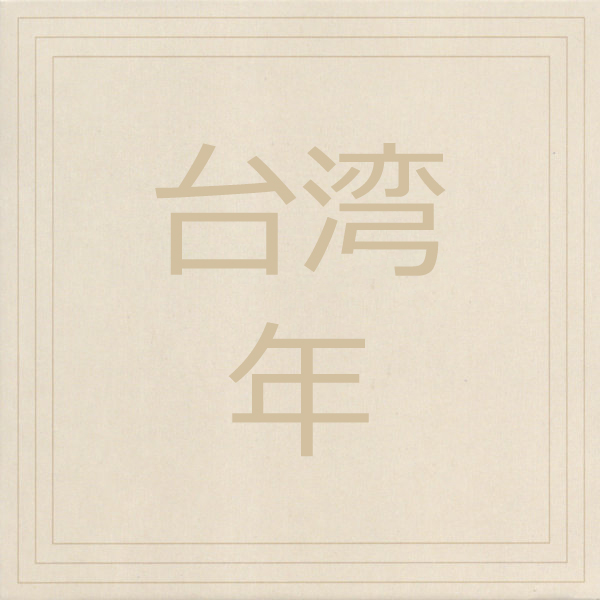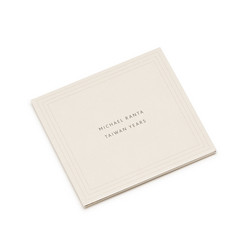Michael Ranta - Taiwan Years
With a strikingly singular career dating back to the early 1970s, the Germany based, American percussionist, composer, and performer, Michael Ranta, is someone we don’t hear from enough. Thankfully, Metaphon, the imprint founded by Timo Van Luijk, Greg Jacobs and Marc Wroblewski to focus on remarkable, previously unreleased archival experimental music, has, over the last decade or so, set out to make his stunning efforts more accessible than they’ve ever been. Their latest offering, Ranta's Taiwan Years, is among the most stunning to date. Comprising three long form works that span the better part of the 1970s, the album delves into his multiple roots and ideas as a composer, percussionist and concrète/electronic musician, building seamless bridges between the Eastern and Western avant-gardes.
Born in 1942 in Duluth, Minnesota, following studies in percussion and composition, Michael Ranta began his career working in the ensemble of his teacher Harry Partch during the mid 1960s, before moving to Cologne in 1967, where he joined Karlheinz Stockhausen group and worked with Mauricio Kagel, Helmut Lachenmann, and Josef Anton Riedl, among others, as well as founding Wired with Karl-Heinz Böttner and Mike Lewis, one of the three bands that is represented on Deutsche Grammophon’s highly sought after Free Improvisation triple LP box set, released in 1973. While these years laid the groundwork for a life in Germany, where he would permanently relocate in 1979, Ranta spent the majority of 1970s living and working in South-East Asia, first working in the electronic studio of the Japanese radio, before moving to Taiwan, where he lived between 1973 and 1979.
Comprising the long-form works Kagaku Henka (1971), China Filch (1975), and At Night (1978), Taiwan Years spans the breadth of Ranta’s focused period traveling to, and living in, Taiwan, a period during which he continued to develop his highly individual voice and creative practice, as well as birthing his legendary collaboration with Toshi Ichiyanagi and Takehisa Kosugi, Improvisation Sep. 1975, offer never before available insight into this crucial and productive period in his career.
For the first sounding of its textures and tones, Taiwan Years immediately unveils the breadth and complexity of Ranta’s practice and compositional vocabulary, extending far beyond his roots as a percussionist into a subtle pallet of electronic and electroacoustic ambiance, threaded by East-Asian esotericism, psychedelia, minimalism, and outright experimental avant-gardism. Long tones and bubbling electronics seamlessly intertwine with the delicate rattling abstraction of percussion and other acoustic sources, producing a series of intricately detailed sonorous landscapes that sound like little else of their moment.
A truly stunning journey into the archives of one of the most fascinating and under-appreciated composers / percussionists working today, Michael Ranta’s Taiwan Years is nothing short of a revelation, and easily one of our favourite records of the year so far. Yet another brilliant entry in Metaphon’s essential catalog of the artist’s work, issued on CD in a edition of 500 copies in a gatefold cardboard sleeve, containing a 12-page booklet. Crazy essential and not to be missed.

